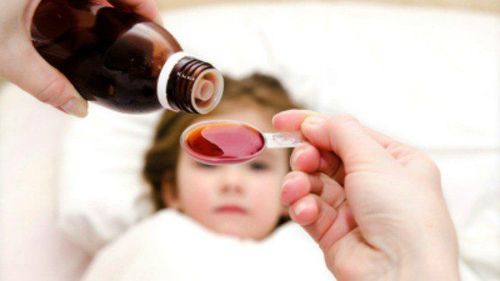This article was professionally consulted with Specialist Doctor I Nguyen Thi My Linh - Department of Pediatrics - Neonatology - Vinmec Da Nang International General Hospital.
When your baby demands to come out early at just the 7th month of pregnancy, this makes you worry about the baby's health as well as how to take care of a premature baby. The immune system and resistance of premature babies will be weaker compared to those born full-term.
1. What is premature birth?
Newborns born before 37 weeks of pregnancy are called premature babies.
Premature babies are at high risk of diseases such as cerebral palsy, developmental disabilities, hearing and vision problems.
The earlier a child is born prematurely, the higher the risk of developing the above diseases. Premature babies often have more health problems than babies born at full term. Premature birth is the most common cause of death in newborns worldwide.

According to WHO, premature birth is classified as follows:
• Babies born before 28 weeks are called extremely premature.
• Babies born between 28 and 32 weeks of pregnancy are called very premature.
• Babies born between 32 and 33 weeks and 6 days of pregnancy are called moderately premature.
• Babies born between 34 and 38 weeks and 6 days are called late premature.
Trắc nghiệm: Thế nào là trẻ sơ sinh non tháng?
Trẻ sơ sinh non tháng rất cần được chăm và điều trị thật tốt để giúp giảm nguy cơ gặp phải các di chứng về tinh thần, vận động và sự phát triển sau này. Cùng theo dõi bài trắc nghiệm dưới đây để có thể nhận biết trẻ sơ sinh non tháng và có thêm kiến thức chăm sóc, nuôi dưỡng tốt nhất cho trẻ.The following content is prepared under supervision of Thạc sĩ, Bác sĩ y khoa, Ma Văn Thấm , Nhi , Phòng khám Đa khoa Vinmec Dương Đông(Phú Quốc)
2. Is it difficult to raise a 7-month premature baby?

Caring for a 7-month premature baby is indeed a challenging task. In addition to the care of parents, the baby needs regular support from a specialist. The more premature a baby is, the more health risks he or she faces and the higher the mortality rate.
• Premature babies under 34 weeks often face several risks such as apnea lasting 20 seconds or longer, and respiratory problems.
• Premature babies under 30 weeks are often at high risk of cerebral hemorrhage, which usually occurs in the first few days after birth. In addition, there is necrotizing enterocolitis, which typically occurs in the 2nd-3rd week after birth, mainly in babies who are not breastfed.
• Retinopathy of prematurity in premature babies needs to be detected and treated promptly, otherwise it can cause blindness, often occurring in babies born before 30 weeks.
• In addition, premature babies may also face other risks such as infection, jaundice, and anemia.
• Premature babies born at 7 months have an underdeveloped digestive system, so in the early stages, digestion and absorption are quite difficult. Moreover, premature babies are more prone to enteritis, making digestion and absorption even more challenging.
Premature babies 7 months old are often given special care in an incubator, so mothers should express milk regularly to send to the baby, usually every 3 hours. Even if the baby cannot eat, mothers should still express it to maintain the breast milk supply. Breast milk is the most valuable medicine for babies, helping them to have less enteritis and better absorption.
With the development of medicine today, most 7-month premature babies can live and leave the hospital after a period of special care. Parents need to learn how to care for their children according to the instructions of medical staff when they meet their babies. Children need to have regular health check-ups to monitor their development.
The survival rate of premature babies does not depend entirely on gestational age, it also depends on other factors and one of the most important factors is timely and appropriate care.
Caring for a 7-month-old premature baby will also vary from child to child because it depends on the health status of each baby as well as the care process of the baby.
3. Common treatments for 7-month-old premature babies
7-month-old premature babies cannot breathe, eat or keep warm on their own, so they need special care to help them develop healthily and avoid dangerous complications.
• The baby is monitored for blood pressure, heart rate, and breathing 24/7 to detect any early signs of abnormalities if present.
• The baby is placed in an incubator for good care. It helps the baby maintain a stable body temperature.

• When eating, a 7-month-old premature baby will be fed by doctors through a small tube that goes directly into the stomach or can be supplemented with nutrition by intravenous injection.
• A 7-month-old premature baby will need a ventilator to maintain life.
In addition, the treatment for 7-month premature babies depends on many factors, especially the health status of each baby, so the care will also be different.
Vinmec Times City International General Hospital has successfully performed many life-saving operations for premature children. In particular, there are premature births with high mortality rates, but after being treated at Vinmec, the babies have all been discharged without any risk of long-term complications.
Vinmec Times City International General Hospital is the only hospital in the North that can save premature babies born at 24 weeks. With modern equipment such as conventional ventilators, high-frequency ventilators, CPAP ventilators, incubators, good infection control capabilities, ensuring a safe environment for children.
Please dial HOTLINE for more information or register for an appointment HERE. Download MyVinmec app to make appointments faster and to manage your bookings easily.
















